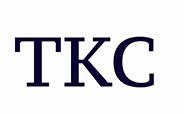Inclusion and Exclusion Criteria
Inclusion Criteria for IV Ketamine
- Adult patients 18 years of age and older.
- Patients with documented *Treatment Resistant Depression” as defined below, who have current moderate to severe depressive symptoms.
- The current primary diagnosis, as defined by the DSM-5, is Major Depressive Episode(MDD), or Bipolar 1 disorder or bipolar 2 disorder depressive phase. The patient may have another DSM-5 diagnosis, but this diagnosis cannot be the primary condition or focus of individuals who have suicidal ideation during the current episode of MDE and meet the above criteria.
- All patients must complete a medical form and be cleared for intravenous ketamine by theTKC anesthesiologist. The anesthesiologist will review the completed medical form prior tothe first infusion and any identified medicalconcerns will be addressed. The patient may be declined from receiving ketamine treatmentbased on their medical history.
- All patients must have capacity to sign a written informed consent for treatment.
- Individuals Post Traumatic Stress Disorder (PTSD) Generalized anxiety disorder (GAD) orObsessive-Compulsive Disorder(OCD) will be considered on a case-by-case basis.
Exclusion Criteria for IV Ketamine
- Patients who are diagnosed with psychosis, even if it is a symptom of MDE.
- Patients with neurocognitive disorders, including dementias.●Patients who have traumatic brain injury that is symptomatic.
- Patients who, within the previous three months, meet the DSM-5 criteria for Alcohol UseDisorder, or other Substance Use Disorder.
- Patients who do not meet the DSM-5 criteria for substance use disorder, but who use illicitsubstances, must stop all illicit substances for a minimum period of 1 month prior to the firstinfusion at TKC and remain free from substance use during the treatment time.
- Patients who are unable to provide a written informed consent for ketamine treatment.●Patients who are not able to abide by the pre-treatment and post-treatment clinic protocol suchas: food intake, abstaining from certain medications, unable to remain in the clinic post-treatmentfor a minimum of 20 minutes or longer for observation, those who insist on driving immediatelypost-treatment, and those who cannot provide the TKC with the name and phone number of theparty who will pick them up post-treatment.
- Patients with uncontrolled hypertension, epilepsy, allergies to ketamine, a previous reaction toketamine, Body Mass Index greater than 35, patients who are pregnant or planning to becomepregnant within 12 weeks of treatment completion, hepatic impairment, history of recent heartattack, vascular disease, or any other medical conditions that may be deemed by the anesthetistas a contraindication to receiving ketamine.
- Individuals who are symptomatic for infection, or who have had contact with someone with an acute contagious illness.
- Individuals who are not Canadian residents or do not have a most responsible physician (MRP) in Canada.
- Individuals who demonstrate verbal, physical or emotional aggression toward TKC staff.
“Treatment Resistant Depression” (TRD) the patient has failed at least two guideline trials of antidepressant therapy for major depressive disorder or bipolar depression.
Begin Your Journey
Submit an inquiry and our team will help you find your best treatment options.
